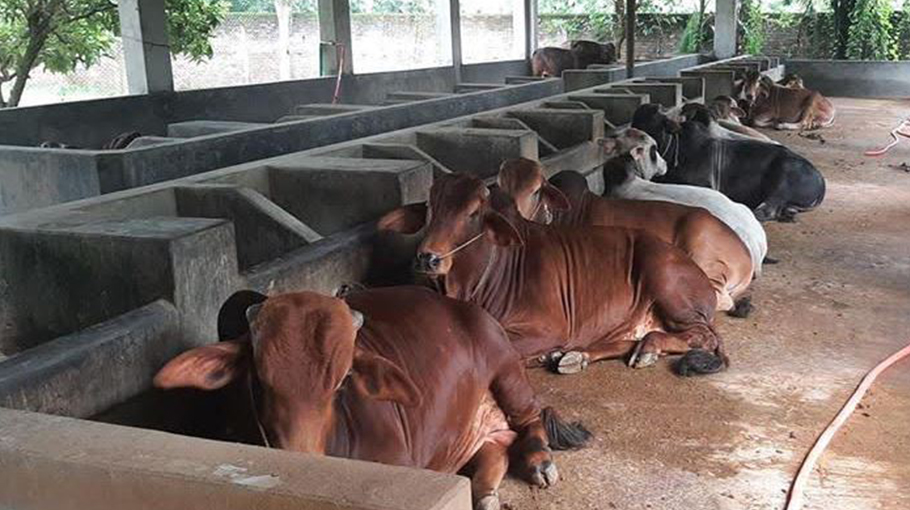Beef fattening generating income for rural people

Beef fattening activities have become vibrant everywhere in Rajshahi area as the villagers look for lucrative profits ahead of the upcoming Eid-Ul-Azha.
This type of beef fattening everywhere in the region has been contributing a lot towards improving living and livelihood conditions of the grassroots population through enriching animal resources for the last couple of decades.
The business has brightened the prospects of exporting beef to different areas within the country after meeting the local demands.
Moreover, the boosted native cattle production has significantly lessened the dependence on cattle imported from the neighboring country.
For the last couple of years, the buyers were seen opting to purchase native animals in most of the cattle markets.
District Livestock Officer Dr Zulfikar Muhammad Akhter Hossain said that the local animal husbandry sector has marked a revolutionary boost in recent years bringing fortune to hundreds of people in the region.
He said many of the rural families have been rearing and fattening bulls commercially and earning huge profits every year.
Some of the poor and marginalized people including women have achieved tremendous successes in the sector.
Meanwhile, for the last couple of years, many villagers have been seen fattening their bulls using natural methods.
They use only straw, molasses, oilcake, gram, black-gram, green grass and wheat bran as feed instead of any steroid tablet or injection.
They are also availing loans from different public and private commercial banks for purchasing bulls, and are repaying within due time.
A group of local farmers formed Medium and Small Enterprises (MSEs) in Premtaly village under Godagari Upazila in order to make their bull fattening business profitable, and sustainable.
The initiative was taken to disseminate the best learning and practices to others, so as to elevate their socio-economic condition, and promote women empowerment through boosting the sector that can meet the country's protein deficiency.
Mabiya Khatun, 45, at Halidagachhi village under Charghat upazila in the district, said she herself prepare straw, grass and other fodders and wash her fattening cattle regularly.
'We are seeing an atmosphere in the village where people are determined to generate income from bull fattening," she added.
Her neighbour Abdus Sattar, 53, having four bulls, narrated his success story of the business.
At least 43 other families of the locality are fattening cattle including bulls to catch the lucrative sacrificial cattle market.
"We see an income-generation atmosphere in the village over the bull fattening," he added.
Already, they have replaced their traditional domestic cattle-rearing process with modern and commercially potential ones.
They become habituated to various money transactions including borrowing loans from different public and private commercial banks for purchasing bulls alongside repaying those in due time.
There are more than 150 beef fattening farms only in Durgapur upazila in the district where the farmers are fattening around 10,000 bulls using the natural method.
Besides, the villagers are also rearing over 25,000 goats in a hygienic manner.
Dr Zulfikar termed the practice as a positive sign for sound public health saying the department of livestock has been extending necessary support towards the farmers in this regard.
"We are discouraging the businessmen and farmers using harmful medicines including hormones and steroids to fatten cattle to make immediate profit by selling fat animals for sacrifice," he added.
Tozammel Haque, a bull fattening farm owner of Nandigram village, said the farmers have adopted new and improved practices and technologies in bull rearing and fattening contributing to enhanced production and productivity.
The size of the market has expanded due to the growing active role of large and small-scale private companies.
Line agencies have become proactive towards supporting market actors especially local service providers (LSPs) by dint of their complementary roles in extension services.
In practice, the LSPs provide training, advice and input to the producers and earn on an average Tk 4,500 per month. Routinely, they extend different modern technology to the producers through setting demonstrations in the locality.



